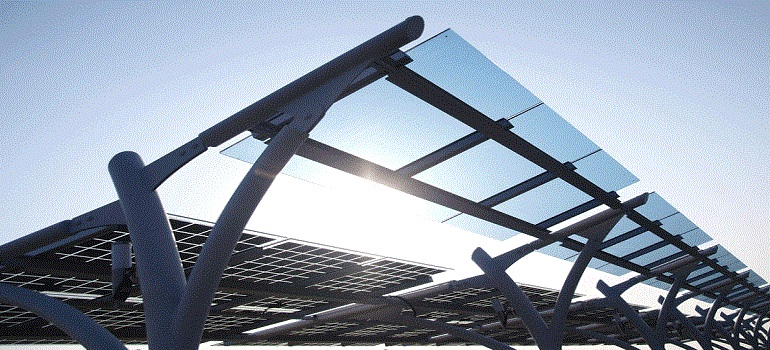 CSIR-National Chemical Laboratory (CSIR-NCL), Pune has installed a Solar Thermal System for the in-house canteen cooking applications. Prof. Ashwini Kumar Nangia, Director, CSIRNCL inaugurated the system.
CSIR-National Chemical Laboratory (CSIR-NCL), Pune has installed a Solar Thermal System for the in-house canteen cooking applications. Prof. Ashwini Kumar Nangia, Director, CSIRNCL inaugurated the system.
The solar thermal system is useful at different temperatures for various applications. Process integration of solar thermal towards cooking application according to need is a huge challenge.
A solar based kitchen was demonstrated at CSIR-NCL’s canteen. The canteen caters breakfast, lunch and tea (morning and afternoon) to about 700 users. The team from Solar Thermal Lab of CSIR-NCL undertook the study of canteen to understand the practices in washing and cooking section. The data was used for recommending a suitable solar system and its integration to current heating practices.
The solar system delivers hot water in the range of 45-50°C for washing section and 85-95°C for cooking section separately. It reduces electricity requirement by 60-70% in washing area and LPG consumption by 55% for boiling process used for Rice, Tea, Lentils, Curry etc.
The system uses Evacuated Tube Collectors (ETC) and Compound Parabolic Concentrator (CPC) solar technologies along with storage tanks, steam cooking vessels, electric boiler and piping. The technical aspects also considered operator’s existing practices, feasibility check of overall integration etc.
The solar system at the canteen includes two ETC solar panels that provide hot water for washing purpose and three CPC solar panels that serve the purpose of cooking water.
The volume of the tank on roof is around 300 litres. An extra tank is installed in kitchen where an electrical heating utility is provided which can be used to bridge the temperature deficit. It serves the purpose of supplying consistent hot water for cooking in all weathers conditions . The capital expenditure for the solar system is around Rs.6 lakh.
The solar system can also be useful for canteens, mid-day meal schools, orphanages, old age homes etc. Hence, solar thermal systems for cooking application will definitely contribute towards using renewable resources ultimately saving the LPG consumption and value addition towards savings in CO2 emissions for the environment.


